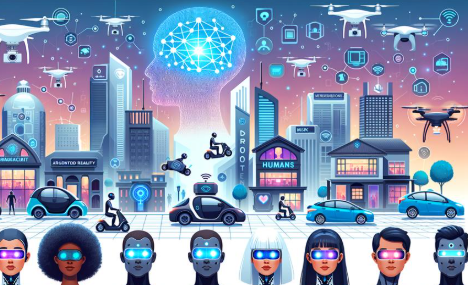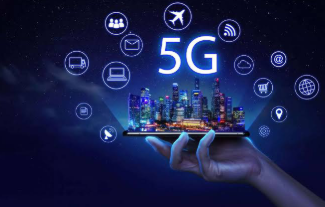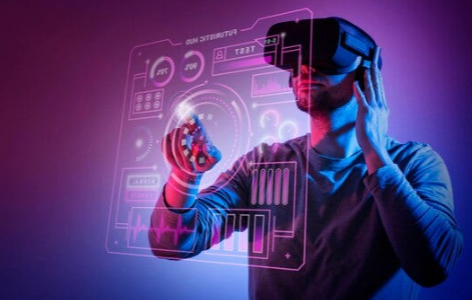How Artificial Intelligence Is Changing Everyday Life
Artificial Intelligence is increasingly becoming a central component of daily life. From automating household tasks to personalizing shopping experiences, its impact is multifaceted. In education, AI adapts learning materials to suit individual needs, while in healthcare, it enhances patient monitoring and diagnostics. As technology continues to evolve, the implications for personal and professional environments are profound. What remains to be seen is how deeply these advancements will reshape societal norms and expectations.
Smart Home Automation
Smart home automation represents a transformative leap in how individuals interact with their living environments. By integrating smart energy solutions and advanced security systems, homeowners can achieve unparalleled convenience and safety.
Voice control technology allows for seamless interaction with various devices, enabling efficient appliance integration and automated lighting. Through remote monitoring, individuals can oversee their homes from anywhere, ensuring optimal home security.
Climate control features facilitate personalized comfort, while energy management systems optimize usage, reducing waste and costs. The emphasis on device interoperability enhances the overall user experience, allowing diverse products to work harmoniously.
As this technology continues to evolve, it empowers individuals to reclaim their autonomy, creating environments that adapt to their needs and preferences.
Read more: Top 10 Tech Gadgets You Must Have This Year
Enhanced Shopping Experiences
The integration of artificial intelligence into daily lives extends beyond home environments, significantly enhancing shopping experiences as well. Retailers are adopting AI technologies like smart carts, which utilize sensors and machine learning to streamline the shopping process. These devices not only track items but also provide real-time suggestions, promoting an efficient and enjoyable experience.
Additionally, virtual fitting rooms are transforming how consumers interact with clothing. By using augmented reality, shoppers can visualize how garments will look on them without the need for physical trials. This innovation reduces returns and increases satisfaction, allowing individuals to shop with more freedom and confidence.
Together, these AI advancements redefine retail, making it more intuitive and personalized, ultimately reshaping consumer expectations.
Personalized Learning in Education
While traditional educational methods often adopt a one-size-fits-all approach, personalized learning powered by artificial intelligence is revolutionizing the way students engage with their studies.
By utilizing adaptive assessments, AI tailors educational content to match each learner’s unique strengths and weaknesses, fostering a more effective learning environment. This dynamic approach enables students to progress at their own pace, ensuring they master concepts before moving forward.
Furthermore, AI provides individualized feedback, allowing educators to monitor progress and adjust teaching strategies accordingly. Such innovations empower students, granting them greater control over their educational journeys.
As AI continues to evolve, it holds the potential to democratize learning, catering to diverse needs and preferences, ultimately enhancing the educational experience for all.
AI in Healthcare: Improving Patient Care
Innovations in artificial intelligence are transforming healthcare by enhancing patient care and improving outcomes. AI technologies facilitate patient monitoring through real-time health data analysis, allowing for timely interventions.
Predictive analytics empowers healthcare providers to anticipate complications, particularly in chronic disease management, leading to more effective personalized treatment plans. AI diagnostics streamline the identification of conditions, reducing the time patients wait for accurate results.
Furthermore, telemedicine advancements integrate AI to enhance remote consultations, expanding access to quality care. Mental health support is also benefiting, as AI-driven applications offer personalized coping strategies and timely interventions for those in need.
Collectively, these developments underscore AI’s pivotal role in fostering a more responsive, efficient, and patient-centered healthcare landscape.
Virtual Assistants: Your Digital Companions
Numerous individuals now rely on virtual assistants to navigate their daily lives, highlighting the growing integration of artificial intelligence in personal routines.
These digital companions utilize voice recognition to facilitate effortless interaction, enhancing task management and providing daily reminders. With features like smart scheduling and language translation, virtual assistants cater to diverse needs, improving accessibility for users.
Their role in customer service further exemplifies their utility, demonstrating emotional intelligence through more personalized responses.
However, as reliance on these tools increases, so do privacy concerns, prompting users to seek customization options that suit their preferences.
Ultimately, virtual assistants embody a fusion of technology and personal freedom, empowering individuals to streamline their lives while navigating potential challenges.
AI-Powered Entertainment Recommendations
As consumers increasingly seek personalized experiences, AI-powered entertainment recommendations have emerged as a crucial tool for curating content that aligns with individual preferences.
These systems utilize viewer analytics and trend analysis to enhance music discovery, offering personalized playlists that resonate with unique tastes. In the realm of film and television, AI provides targeted movie suggestions, creating binge watching aids that keep audiences engaged.
Game recommendations are tailored based on genre preferences, ensuring players encounter titles that captivate their interest. Furthermore, AI fosters interactive storytelling by adapting narratives to user choices, enriching the entertainment experience.
Transforming Transportation With AI
The integration of artificial intelligence into various aspects of daily life extends beyond entertainment, significantly impacting the transportation sector.
Autonomous vehicles are at the forefront of this transformation, promising to reshape how individuals navigate urban landscapes. By utilizing AI algorithms, these vehicles can analyze vast amounts of data in real time, enhancing safety and efficiency on the roads.
Additionally, AI-driven traffic management systems optimize traffic flow, reducing congestion and minimizing travel times. These advancements not only foster a sense of freedom for commuters but also contribute to environmental sustainability by decreasing emissions.
As AI technology continues to evolve, it holds the potential to revolutionize transportation, making it safer, more efficient, and more accessible for everyone.
Streamlining Workplace Efficiency
Artificial intelligence has emerged as a critical tool for enhancing workplace efficiency across diverse industries. By implementing automated workflows, organizations can significantly reduce the time spent on repetitive tasks, allowing employees to focus on more strategic initiatives.
AI-driven systems streamline processes by intelligently routing information, thus minimizing delays and errors. Furthermore, productivity analytics offer valuable insights into employee performance and resource allocation, enabling businesses to make data-driven decisions that foster continuous improvement.
This integration of AI not only boosts operational efficiency but also cultivates a culture of innovation and adaptability. As workplaces increasingly embrace AI technology, the potential for enhanced productivity and employee satisfaction continues to expand, ultimately leading to a more liberated and empowered workforce.
The Role of AI in Social Interactions
Artificial intelligence is increasingly shaping social interactions through various communication tools and social media platforms.
Algorithms curate user experiences, influencing the way individuals connect and engage online, while virtual companions introduce a new dimension to personal relationships.
As AI continues to evolve, its impact on how people communicate and form connections warrants careful consideration.
AI in Communication Tools
As communication increasingly shifts to digital platforms, the integration of AI into these tools has transformed how individuals interact with one another.
The chatbot evolution has enabled real-time, personalized conversations, enhancing user experience across various applications. These intelligent interfaces not only provide immediate responses but also learn from interactions, making them more effective over time.
Furthermore, advancements in language translation powered by AI allow people from diverse backgrounds to communicate effortlessly, breaking down language barriers and fostering global connections.
This seamless integration of AI in communication tools empowers users, promoting a sense of freedom in expressing thoughts and ideas without the constraints of traditional communication methods.
Ultimately, AI is reshaping the landscape of social interactions, creating a more inclusive digital world.
Social Media Algorithms Impact
While users scroll through their social media feeds, they often remain unaware of the sophisticated algorithms that curate their online experiences. These algorithms utilize artificial intelligence to analyze user behavior, preferences, and interactions, thereby shaping the content that appears.
This targeted approach enhances engagement but raises significant concerns about social media privacy. The lack of algorithm transparency complicates users’ understanding of how their data is being used and how content is prioritized.
Consequently, individuals may unknowingly exist within echo chambers, limiting exposure to diverse viewpoints. As users increasingly demand accountability, the conversation around algorithm transparency becomes crucial.
Balancing personalization with ethical data practices is vital for fostering freedom of expression and ensuring that social media remains a space for genuine interaction.
Virtual Companions and Relationships
How do virtual companions redefine social interactions in an increasingly digital world? As artificial intelligence evolves, it cultivates unique virtual friendships that transcend traditional boundaries.
These digital entities offer emotional support, helping individuals navigate loneliness and enhance mental well-being. By providing companionship, virtual companions allow users to engage in meaningful conversations and share experiences without the constraints often found in human interactions.
Their presence can alleviate feelings of isolation, particularly for those who struggle with social anxiety or have limited access to physical relationships. However, the reliance on AI for emotional fulfillment raises questions about authenticity and the essence of genuine connections.
Ultimately, while virtual companions enrich social landscapes, they also challenge the nature of human relationships in an ever-connected society.
Conclusion
As artificial intelligence continues to weave itself into the fabric of daily life, it transforms homes into smart sanctuaries, shopping into seamless experiences, and learning into tailored journeys. With healthcare becoming more precise and transportation more efficient, AI stands as a silent partner in our routines. It enhances entertainment choices, streamlines workplaces, and shapes social interactions, creating a world where technology not only assists but enriches, ensuring that life is more connected, convenient, and personalized than ever before.




